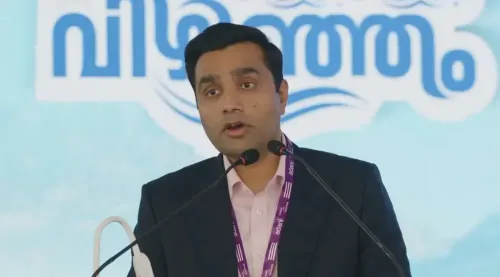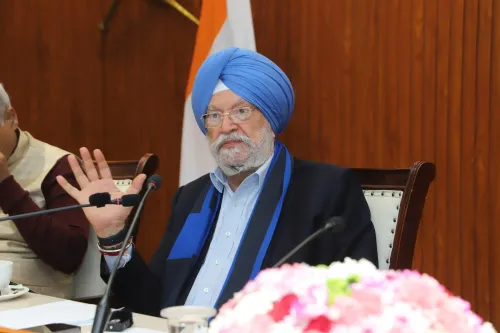Karnataka Global Investors Meet: Texas Instruments CEO Declares India's Semiconductor Future Bright
Synopsis
Key Takeaways
- India's semiconductor sector is set for exponential growth.
- Quality education and research are vital for progress.
- Investment in AI is necessary for chip design innovation.
- Karnataka's institutions have significant potential in the industry.
- Collaborations are essential for industrial growth.
Bengaluru, Feb 12 (NationPress) In a discourse regarding India's potential in the semiconductor industry, Santosh Kumar, CEO of Texas Instruments, asserted that the upcoming decade is crucial for India.
His remarks came during a panel on "India's Role in the Semiconductor Revolution" at the Global Investors' Meet held in Bengaluru on Wednesday.
Initiating the conversation, Santosh Kumar remarked, “The next 10 years will be pivotal for India in the semiconductor arena. Over this span, the sector's current valuation of $40 billion is projected to exceed $400 billion. To seize this opportunity effectively, we need to focus on high-caliber educators, research, and hands-on learning within our educational framework. The government should bolster research initiatives in academic institutions aimed at developing efficient solutions for national issues.”
India aims to evolve into a $5 trillion economy in the forthcoming years, with $3 trillion anticipated from the ESDM (Electronics System Design and Manufacturing) sector. Nonetheless, these prospects are not solely India's -- various nations are vying for a share. To secure a leading position, enhancing our quality education system is imperative, he emphasized.
He stressed that quality education and research are fundamental to India's semiconductor advancement.
Jitendra Chadda, Managing Director at Global Fab Engineering Solutions, noted that while India accounts for 25 percent of global semiconductor chip design, it falls short in manufacturing. In the next 5 to 10 years, artificial intelligence (AI) will permeate every sector, necessitating a rise in personalized chip design expertise, which will require investments of $15 to $20 million.
The largest global economies are increasingly dependent on the semiconductor sector. While Taiwan and Japan currently lead in chip manufacturing, India has yet to establish a fully developed ecosystem to foster semiconductor growth, he pointed out.
Hitendra Garg, Vice President of NXP Semiconductors, provided an example, stating, “Two decades ago, when NFC (Near Field Communication) technology was launched, there were minimal users. It took nearly ten years for widespread acceptance. Today, however, chip designs measured in nanometers are being developed in Bengaluru. This underscores the potential of technology.”
He further emphasized that Karnataka's educational institutions and startups possess immense potential for the semiconductor industry.
India, particularly Karnataka, is already recognized as a global software hub, with Bengaluru hosting extensive electronics research and development. However, the absence of market-driven applications for these innovations poses a significant challenge. Additionally, fostering more collaborations and partnerships is crucial. Without these, industrial growth may stagnate, he cautioned.
The session was moderated by Rangesh, a senior executive at Lam Research.










